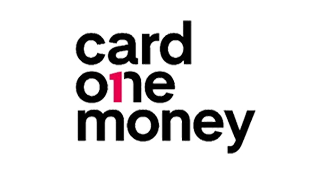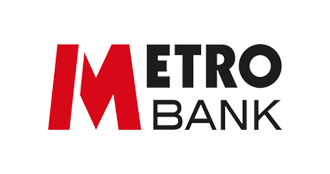Business overdrafts operate the same way as a personal account overdraft. You can apply this safety net to your business bank account, giving your company the greatest chance of meeting all financial obligations and maintaining cash flow in even the leanest trading times. While remaining in the red is not a sustainable way to operate a business, an overdraft can help SME owners sleep easier at night while waiting for invoices to clear.
 | Tide Business Bank Accounts ✓ Free, Plus, or Pro Account ✓ iOS & Android Mobile App ✓ Upload & Auto-Match Receipts Pricing Trial period Contact | |
 | Card One Money ✓ No Credit Checks ✓ Simple Fees ✓ Up To 3.5% Cashback Pricing Trial period Contact | |
 | ANNA Money ✓ Apply In 10 Minutes ✓ Bookkeeping & Payroll Tools ✓ User-Friendly Mobile App Pricing Trial period Contact | |
 | HSBC Business Banking ✓ Business Current Account ✓ In-Branch, Online & App Banking ✓ FSCS Protected Pricing Trial period Contact | |
 | Metro Business Banking ✓ Business Current Account ✓ High Street Presence ✓ FSCS Protected Pricing Trial period Contact | |
 | Mettle Business Banking ✓ Business Bank Account ✓ Online & App ✓ Quick & Easy Application Process Pricing Trial period Contact | |
 | Monzo Business Banking ✓ Business Current Account ✓ Dedicated mobile app experience ✓ FSCS Protected Pricing Trial period Contact | |
 | Virgin Money ✓ Business M Account ✓ In-Store, Online & App Banking ✓ Insights & Forecasting Platform Pricing Trial period Contact |
Which banks offer the best business overdrafts?
Only you can answer this, based on your unique needs. Let’s review some of the biggest names in the game:
Top 10 best business overdrafts
| Bank | Overdraft limit1 | Set-up fee2 | Interest rate3 |
|---|---|---|---|
| Barclays | £50,000 | Up to 2.5% of overdraft limit | Up to 11.01% |
| Cooperative | £250,000 | £50 or 1.5% of overdraft limit | Upon application |
| HSBC | Upon application | Minimum of £25 | 14.25% |
| Lloyds | £25,000 | £120 or 1.99% of overdraft limit | 11.52% |
| Metro Bank | £60,000 | £50 or 1.75% of overdraft limit | 10% |
| NatWest | £50,000 | £150 or 1.5% of overdraft limit | Upon application |
| Royal Bank of Scotland | £50,000 | £1,500 or 1.5% of overdraft limit | Upon application |
| Santander | £25,000 | £50 or 1% of overdraft limit | 10% |
| Starling Bank | £50,000 | 1.75% of overdraft limit | Minimum of 5% |
| TSB | £15,000 or more | £250 or 1.5% of overdraft limit | 10.16% |
Other banks, including location-specific lenders, will also offer business overdraft facilities, but here we have focused on the most popular banks in the UK high street and online.
Consider your priorities for a business overdraft, such as whether you are prepared to pay a higher set-up cost in exchange for a lower interest rate or vice versa, and sign up for the business overdraft that suits your company best.
Of course, you’ll also need to consider that the overdraft will be linked to your business bank account. There is little to gain by opening a substandard account just because the overdraft conditions are appealing – you need to consider the entire package.
Can any company get a business overdraft?
As with personal overdrafts, a business overdraft is a line of unsecured credit, so your company must pass a credit check to qualify. Also, be aware that not all business bank accounts offer overdraft facilities.
If you run a charity or non-profit bank account, for example, you’re unlikely to be offered an overdraft. The same applies to a very basic sole trader bank accounts. Business overdrafts tend to be reserved for more traditional – and expensive – trading accounts.
What makes a good business overdraft?
If you are considering a business overdraft for your company bank account, do not blindly sign up for this facility without considering the terms and conditions. In an ideal world, a business overdraft will meet the following criteria.
- A substantial borrowing limit. If you use an overdraft facility and pay the fees associated with this, make it worth your while to do so. Some banks will offer a five-figure overdraft, others will cap your borrowing at a lower rate
- Overdraft limit that can be increased or decreased as you need. Give yourself wriggle room if you need more money in a pinch, or if you wish to reduce your limit to protect your bottom line and avoid the temptation to run up business debt
- A competitive interest rate. Any borrowing on an overdraft will attract interest, so ensure any borrowing will not be magnified and multiplied by this
- Fixed or variable interest rates, depending on your preference. Avoid tracker rates – these will vary monthly, and you will never know how much you will be charged, making it hard to budget
- Agreeable repayment terms. As with a personal overdraft, a bank will retain the right to demand repayment of a business overdraft at any time. Check the small print to check if this is likely to be triggered at an inopportune moment, for your peace of mind
You will likely also have your own criteria when choosing a business overdraft. Shop around and find an agreement that meets as many of these needs and desires as is feasible.
Should my company apply for a business overdraft?
Whether you agree to an overdraft on a business account is a matter of personal choice, as there will be fees involved. However, business income can be unpredictable, and sometimes it’s better to have access to an overdraft you do not need than to need access to an overdraft you do not have.
If your account is perpetually five digits in credit, you may feel that a business overdraft is a needless expense. However, consider the cost implications of significant, unexpected charges that could come your way. The Covid-19 pandemic wreaked havoc on industries worldwide, an example of unprecedented and unanticipated financial calamity.
Here is another way to consider the expenses associated with a business overdraft – it will likely be cheaper than any of the following:
- Bank charges and penalty fees if a cheque or direct debit payment to a supplier fails to clear on time due to insufficient funds
- Fines and interest rates levied by HMRC if you cannot afford to pay your tax bills by the set deadline
- Long-term repayments on a business loan taken out to cover major, unexpected expenses, such as repairs to a workplace following water or fire damage
- Damage to your standing by failing to pay suppliers on time, or even worse, missing a payroll run for your employees. A business can always find ways to make income, but a reputation as unreliable is hard to recover from.
Suppose you’re running an SME with fluctuating or seasonal income. In that case, an overdraft could save you substantial sums – and avoid any damage to your reputation – if a supplier is late in paying an invoice and your cash flow is disrupted.
Successfully applying for and managing a business overdraft will also improve your company’s credit score, making it easier to attract appealing interest rates if you need to undertake more formal borrowing in the future.
1 This is the highest business overdraft limit this bank offers without special dispensation, not necessarily the overdraft limit that will automatically be applied to your account.
2 Where two costs are quoted, whichever is highest will be the charge applied.
3 All banks reserve the right to vary interest rates according to the Bank of England base rate, and the rate your business offers will be influenced by a range of external factors, including your credit score. While all efforts are made to provide accurate information in this article, confirm the interest rate with the bank in question.

